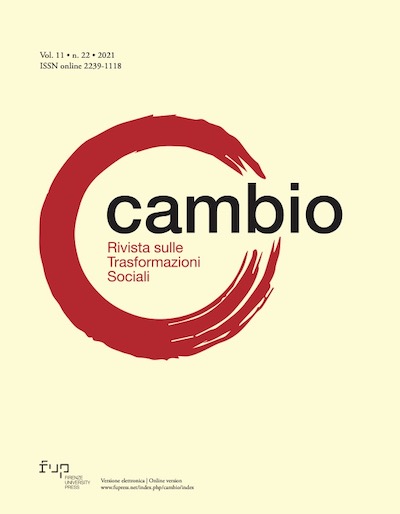‘Sentivo che stavo facendo la cosa giusta’. Aspettative di mobilità geografica e traiettorie socio-culturali degli studenti e delle studentesse in Italia
Published 2022-08-03
Keywords
- Transition to adulthood,
- geographic mobility,
- social trajectory,
- higher education,
- cosmopolitanism
How to Cite
Abstract
In the last decades, the increasing geographic mobility of young people (for educational, professional, and further reasons) has led scholars of youth studies to shift their interest towards this phenomenon for better understanding the new forms of transition to adulthood. Nevertheless, it seems that little attention has been paid until now to the interdependence between their geographic mobility and their family, territorial and cultural origins and therefore how these factors affect how young people image and project their transition to adulthood. Thus, departing from the research fields of youth studies, mobility studies, and higher education studies, this article focuses on the mobility paths of Italian students and the ways they understand their mobility condition (starting from the question whether it is a free choice or not), taking into account, on the one hand, the growing pressure of a more and more competitive global labor market and, on the other hand, the cultural and economic resources (or capitals) they cumulated through their family and territorial socialization. In the analysis, we will however highlight how, despite the conditions sometimes not favorable, the respondents showed a reflexive competence when they make choices about their education, mobility and professional path and think about their ways of becoming ‘adult’.


